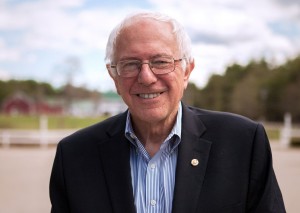 For everything under the sun, if state and federal law contradict each other, the Feds win. However, new court cases are challenging this rule, and the cases involve marijuana. Legalized marijuana merchants have a tough time finding everything from funding to marijuana payment solutions, so state law typically helps these merchants. However, the banks are held close by the Feds, so you see why this is a problem. With preemption arguments about to open, will the marijuana industry set precedent for other types of conflict in the courts?
For everything under the sun, if state and federal law contradict each other, the Feds win. However, new court cases are challenging this rule, and the cases involve marijuana. Legalized marijuana merchants have a tough time finding everything from funding to marijuana payment solutions, so state law typically helps these merchants. However, the banks are held close by the Feds, so you see why this is a problem. With preemption arguments about to open, will the marijuana industry set precedent for other types of conflict in the courts?
Preemption concerns the conflict of state and federal law if a “conflict” arises between the two. With marijuana, the conflict is state legalization and the federal illegal status. The status of preemption concerns the “conflict” issue, wanting a clear definition of what a conflict actually is. Many claim that there is no conflict; that the Feds want their way, and the state (i.e. the citizens of the states) have voted to amend the law. They claim that no conflict exists, so federal preemption should not occur, and state law should take precedent. Congress has expressly indicated that its intention in enacting the Controlled Substances Act was not to totally preempt all state drug laws. States have long enacted their own criminal laws relating to marijuana possession, so there is no conflict. Or, at least if there was conflict is should have brought up decades ago.
There should be something said for state citizens who have voted to legalized marijuana. Not all states have legalized it via a vote; the attempt failed in Georgia a few years ago, even though medical Cannabis Oil has been hot new as of late. With our upcoming Presidential election looming, and many wanting a “non-insider” politician, will this have any effect on the ruling on federal preemption? Probably not, since the courts will rule before November. However, it will be interesting to see the effect the entire process has on, well, everything. From consumers to merchants to banks, and even politicians, this ruling will have a major impact one way or another.
Contact us for Marijuana payment Solutions today!


 For the last few years, marijuana merchants have searched for legitimate payment processing solutions. Even businesses headed by experienced entrepreneurs with solid business plans have been rejected by banks and other financial institutions. Now cannabis companies might find banking solutions with Native American tribes. A new company called CannaNative, is currently negotiating with tribes in the western U.S. to bank with marijuana companies.
For the last few years, marijuana merchants have searched for legitimate payment processing solutions. Even businesses headed by experienced entrepreneurs with solid business plans have been rejected by banks and other financial institutions. Now cannabis companies might find banking solutions with Native American tribes. A new company called CannaNative, is currently negotiating with tribes in the western U.S. to bank with marijuana companies.
 As cannabis is legalized across the country, manufacturers are searching for ways to legitimize their products through packaging. Currently, the industry is comprised of a patchwork of state-level regulations that regulate taxes, manufacturing, methods of consumption, labeling and more. Cannabis industry professionals believe that setting a national standard for labeling will empower consumers to purchase their products and ease the minds of potential customers.
As cannabis is legalized across the country, manufacturers are searching for ways to legitimize their products through packaging. Currently, the industry is comprised of a patchwork of state-level regulations that regulate taxes, manufacturing, methods of consumption, labeling and more. Cannabis industry professionals believe that setting a national standard for labeling will empower consumers to purchase their products and ease the minds of potential customers. States that are fighting to legalize marijuana next year should be paying close attention to what is happening in Ohio. Ohio’s ballet measure, Issue 3, was defeated by a crushing 64 percent by voters. The ballet would have allowed only 10 marijuana growing sites in Ohio. The sites were owned by some of the wealthiest individuals in Ohio like reality TV star Nick Lachey. This fact may have been a leading reason why legalization was denied by voters.
States that are fighting to legalize marijuana next year should be paying close attention to what is happening in Ohio. Ohio’s ballet measure, Issue 3, was defeated by a crushing 64 percent by voters. The ballet would have allowed only 10 marijuana growing sites in Ohio. The sites were owned by some of the wealthiest individuals in Ohio like reality TV star Nick Lachey. This fact may have been a leading reason why legalization was denied by voters. New York recently awarded five medical cannabis businesses licenses to operate in the state. Despite official recognition, the winners will most likely have a hard time finding a financial institution to provide services. Although the Obama administration vowed to not prosecute merchants who operate lawfully, there is still too much ambiguity in federal laws in regards to responsibility and regulations for banks. Currently, regulations state that banks are responsible for monitoring cannabis accounts and ensuring compliance. Banks are also required to report any suspicious activities. Neglect to monitor cannabis accounts could result in severe punishment.
New York recently awarded five medical cannabis businesses licenses to operate in the state. Despite official recognition, the winners will most likely have a hard time finding a financial institution to provide services. Although the Obama administration vowed to not prosecute merchants who operate lawfully, there is still too much ambiguity in federal laws in regards to responsibility and regulations for banks. Currently, regulations state that banks are responsible for monitoring cannabis accounts and ensuring compliance. Banks are also required to report any suspicious activities. Neglect to monitor cannabis accounts could result in severe punishment. The U.S. Federal Reserve stated in a Colorado court that it won’t accept money made from the sale of cannabis since it is still an illegal drug under federal law. The Federal Reserve also asks to dismiss a lawsuit brought against it by the Fourth Corner Credit Union wanting to service a marijuana business.
The U.S. Federal Reserve stated in a Colorado court that it won’t accept money made from the sale of cannabis since it is still an illegal drug under federal law. The Federal Reserve also asks to dismiss a lawsuit brought against it by the Fourth Corner Credit Union wanting to service a marijuana business. Mexico is taking control when it comes to marijuana – at least somewhat. Thanks to a recent Supreme Court ruling, four people in the Mexican Society for Responsible and Tolerant Personal Use can now grow and use their own marijuana. While four people in a country with 122 million people may not seem like a big deal, it does set precedent in a country known for its marijuana issues. The Supreme Court ruled in this case that it was unconstitutional to prohibit people from growing and using their own marijuana, so more are likely to become green thumbs.
Mexico is taking control when it comes to marijuana – at least somewhat. Thanks to a recent Supreme Court ruling, four people in the Mexican Society for Responsible and Tolerant Personal Use can now grow and use their own marijuana. While four people in a country with 122 million people may not seem like a big deal, it does set precedent in a country known for its marijuana issues. The Supreme Court ruled in this case that it was unconstitutional to prohibit people from growing and using their own marijuana, so more are likely to become green thumbs.
 While some in the media – and well-paid lobbyist – want to convince you that pot is evil, our police have a different take on the drug. The DEA released its annual survey of law enforcement officers from around the USA, and found that marijuana is the least of their drug worries. Literally, the least, as it came in last with only 6% of the surveyors saying that it was. While marijuana has never been at the top of the list, it was in the middle in the early to mid-2000s. While consumers have a relaxed view on pot, it’s interesting to see that it isn’t the biggest worry for police, and this could have an overwhelming effect on the government and its stance on the drug.
While some in the media – and well-paid lobbyist – want to convince you that pot is evil, our police have a different take on the drug. The DEA released its annual survey of law enforcement officers from around the USA, and found that marijuana is the least of their drug worries. Literally, the least, as it came in last with only 6% of the surveyors saying that it was. While marijuana has never been at the top of the list, it was in the middle in the early to mid-2000s. While consumers have a relaxed view on pot, it’s interesting to see that it isn’t the biggest worry for police, and this could have an overwhelming effect on the government and its stance on the drug. Senator Bernie Sanders from Vermont is pushing his fellow senators to legalize marijuana nationwide. While this isn’t a shock due to Senator Sanders views, it does show that the American people may be ready for a change. Sanders is rising in the polls in many states, and his message is coming across loud and clear. While the bill seems promising, there is a catch involved.
Senator Bernie Sanders from Vermont is pushing his fellow senators to legalize marijuana nationwide. While this isn’t a shock due to Senator Sanders views, it does show that the American people may be ready for a change. Sanders is rising in the polls in many states, and his message is coming across loud and clear. While the bill seems promising, there is a catch involved.